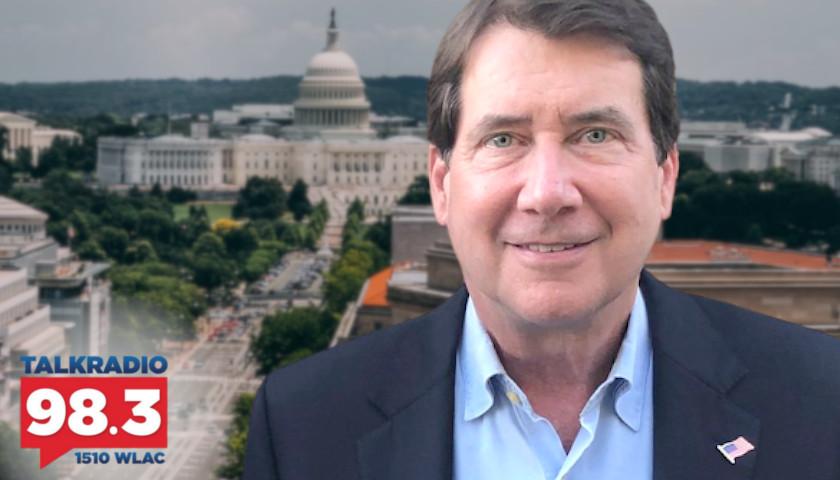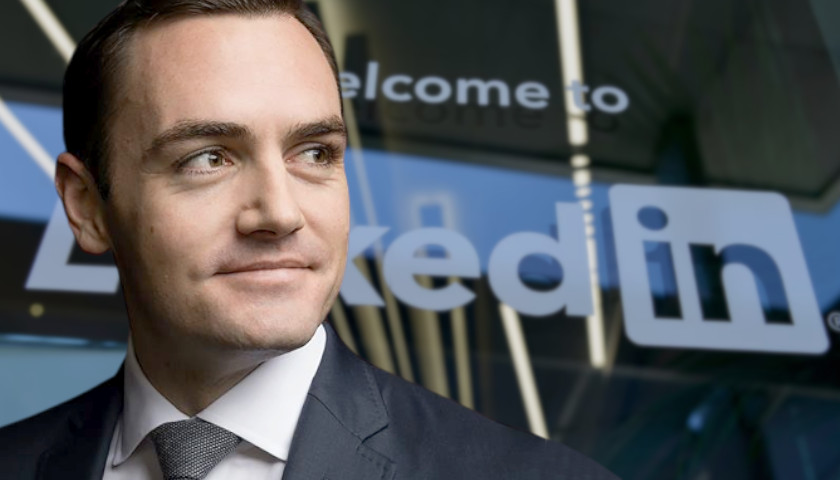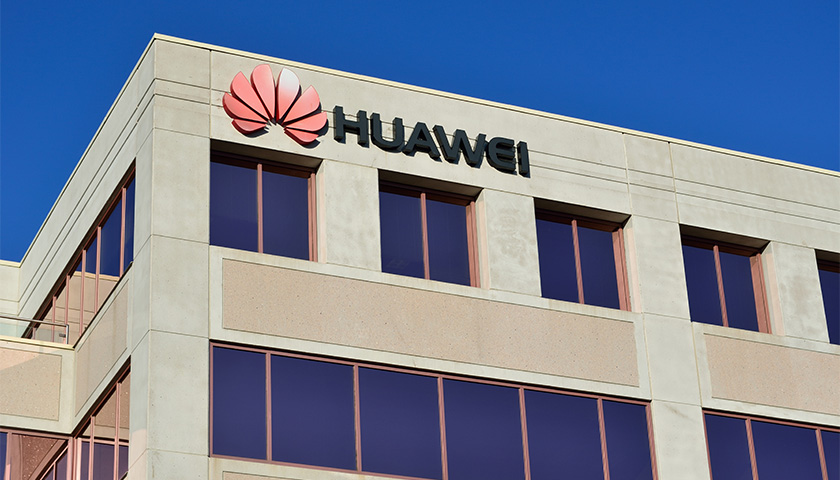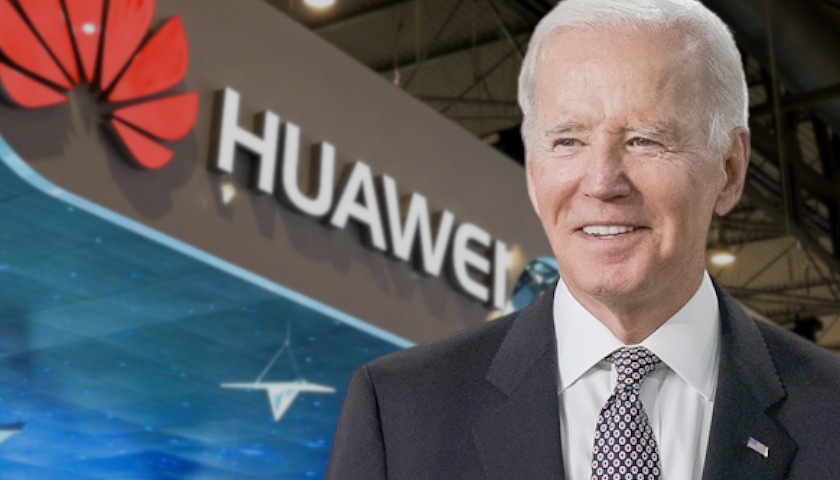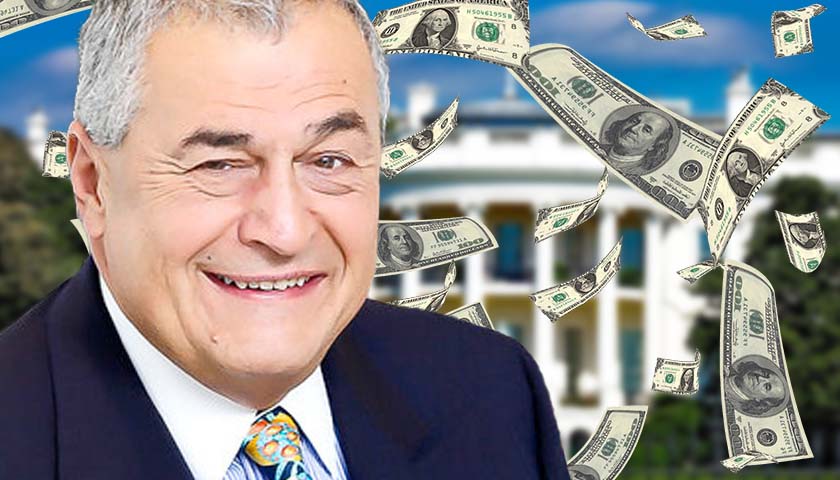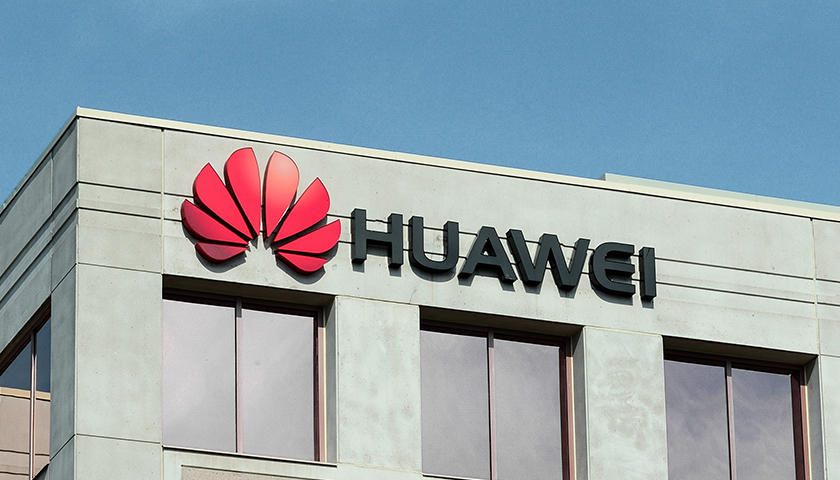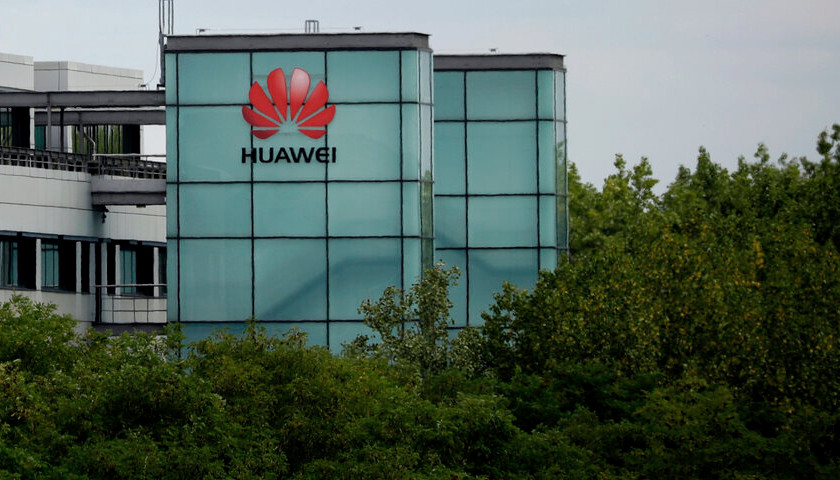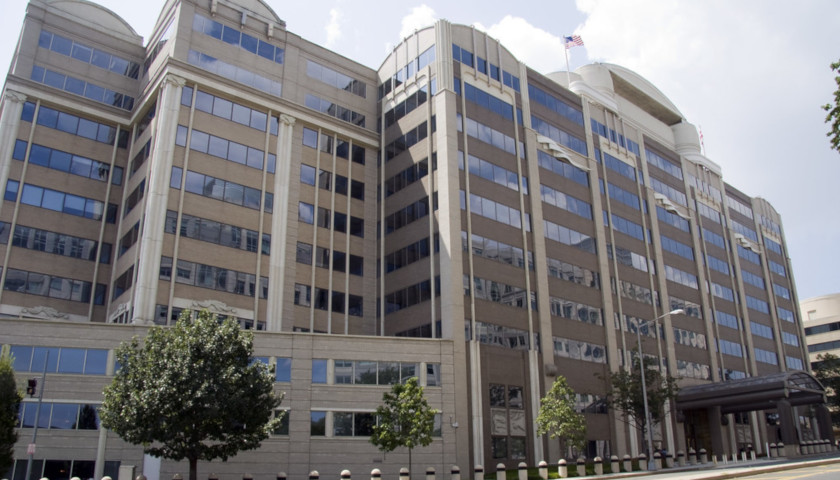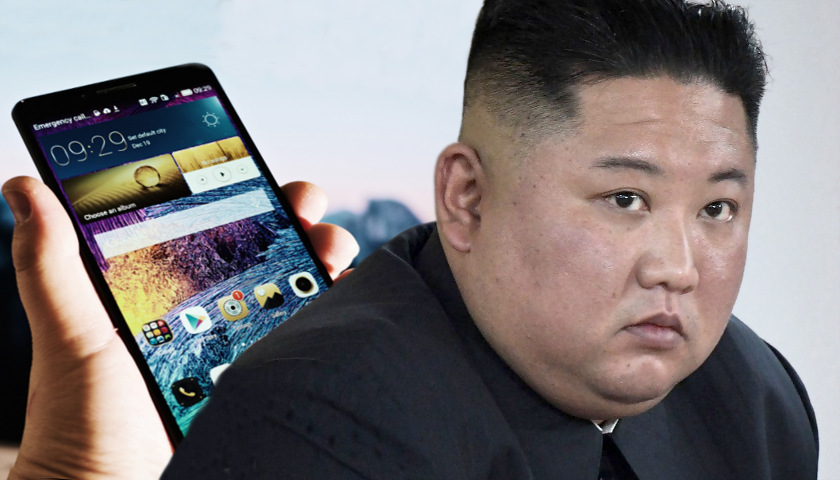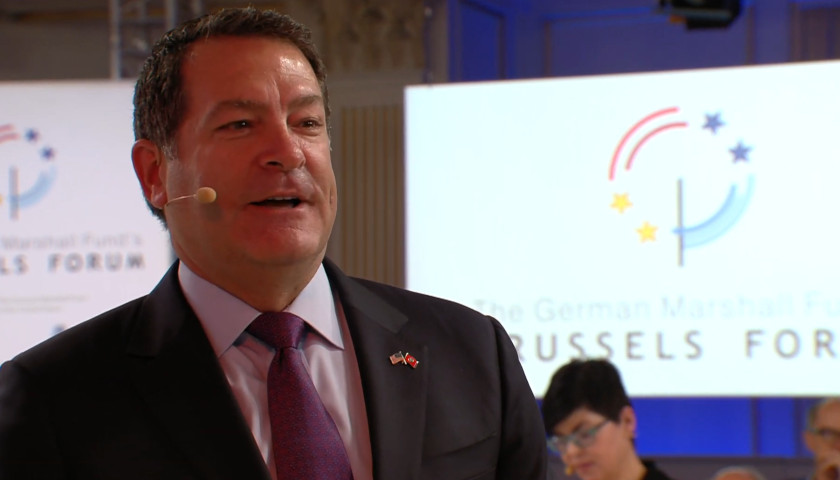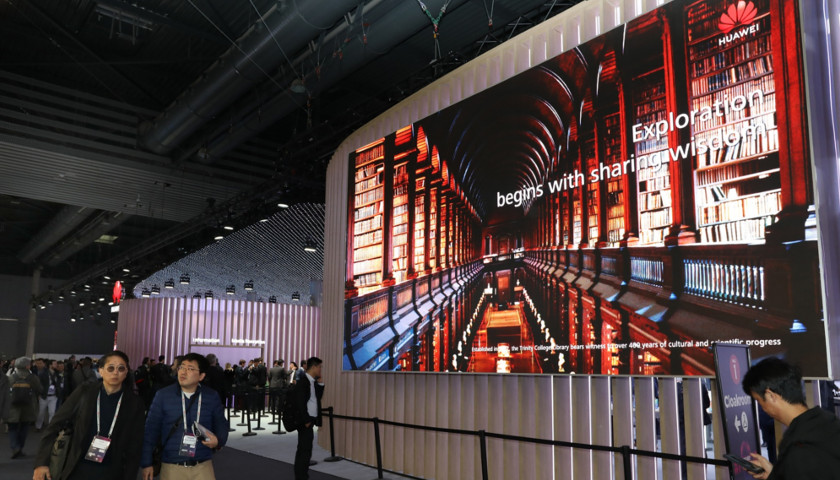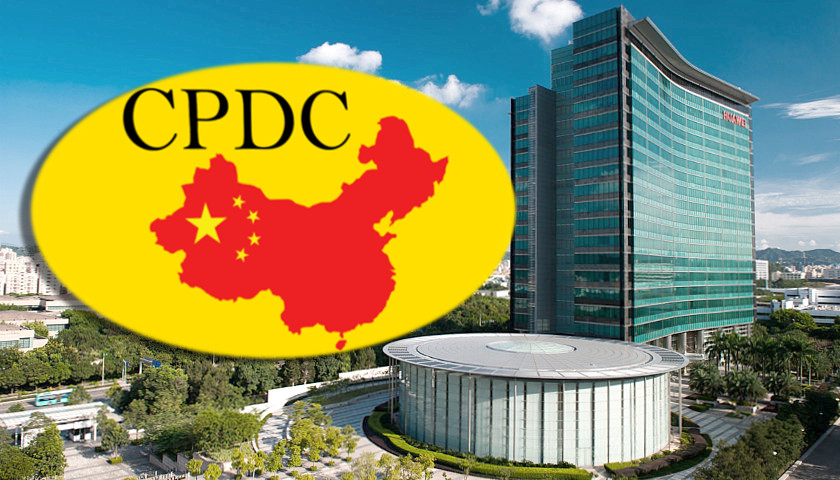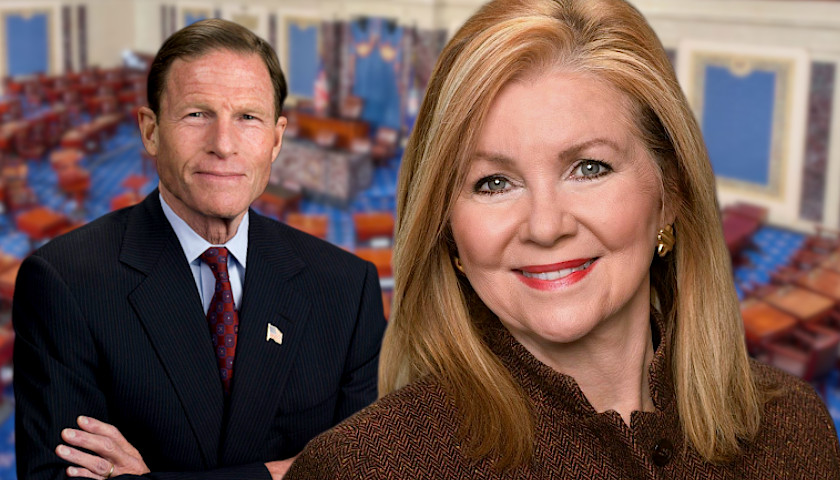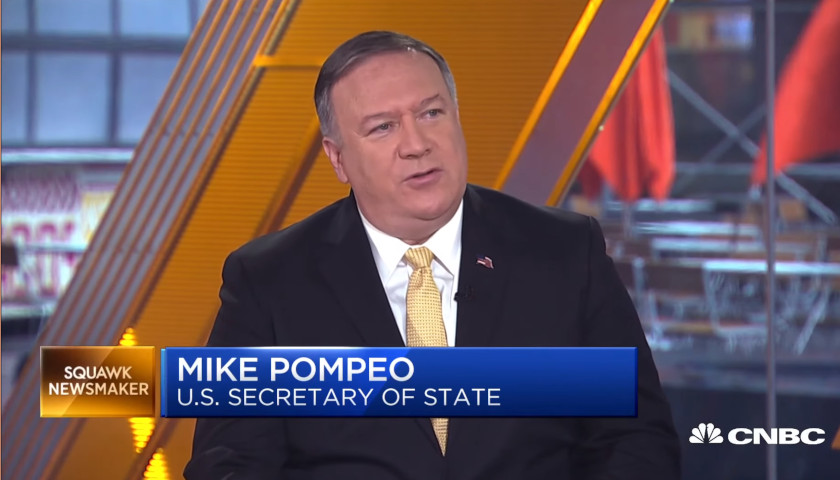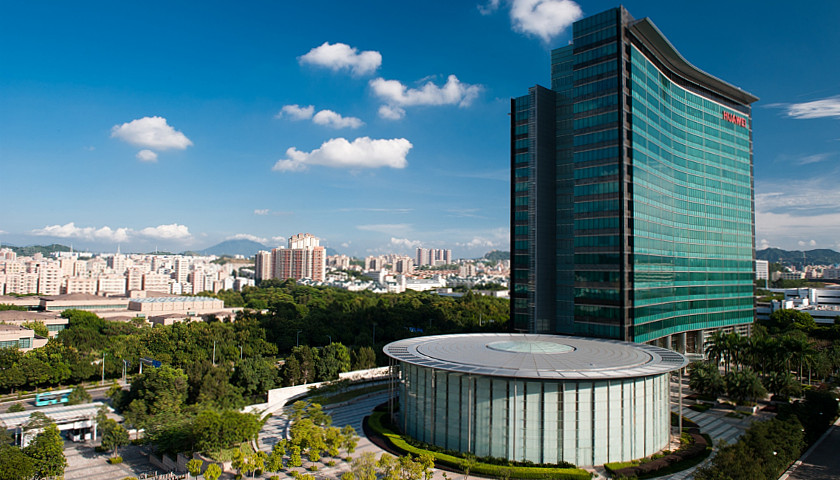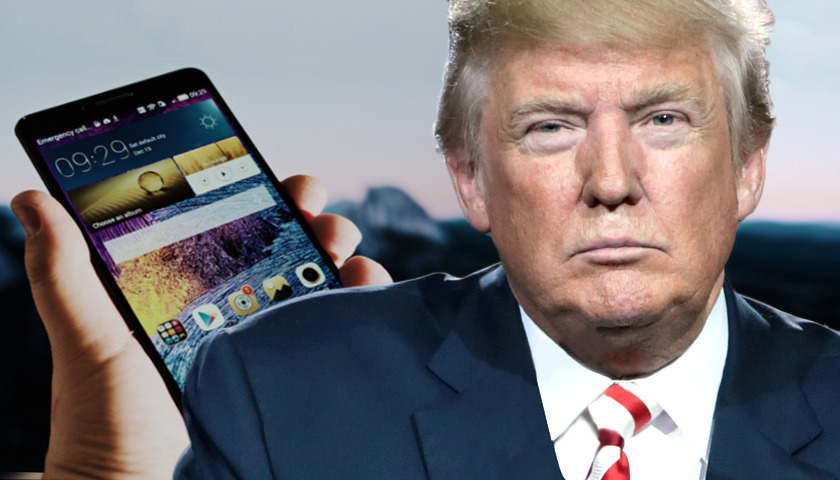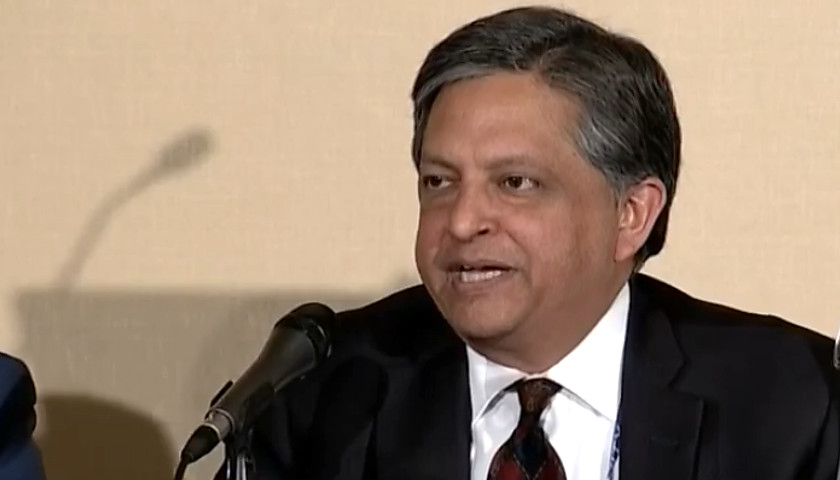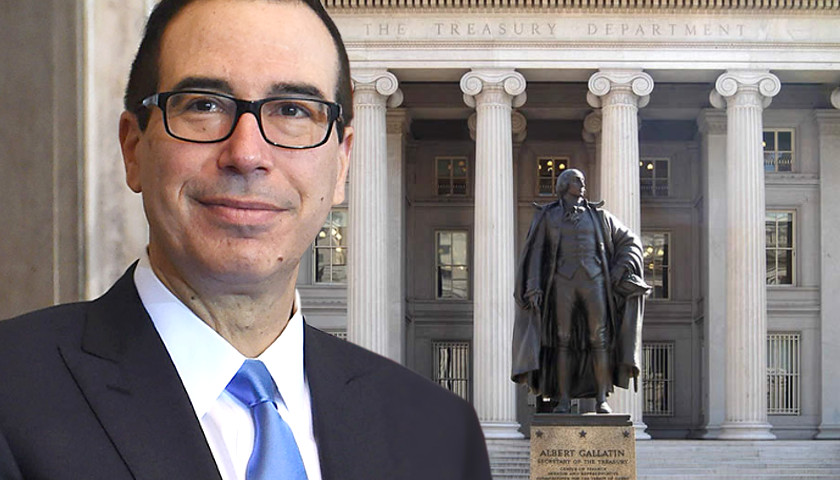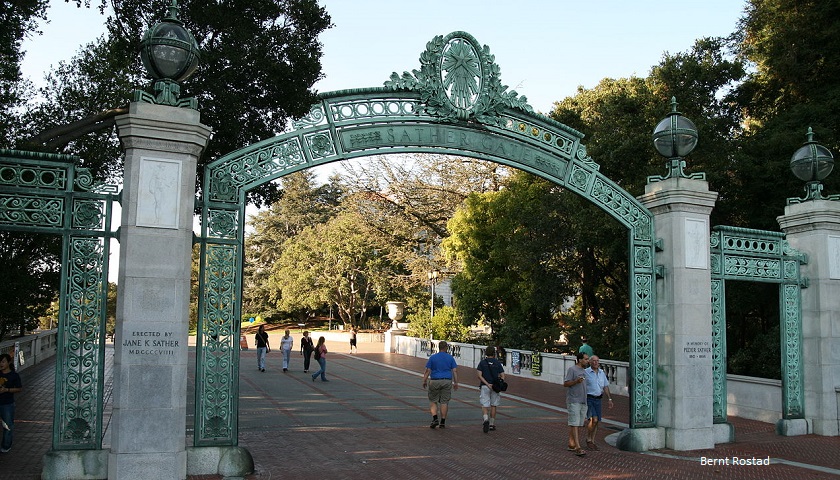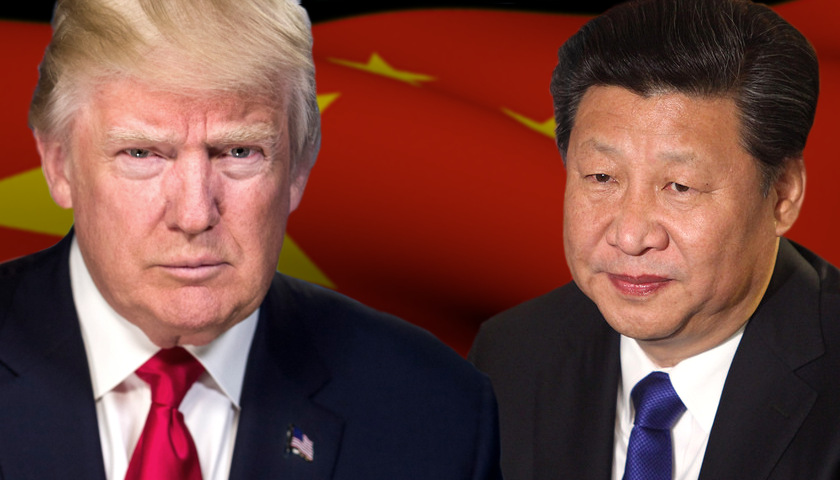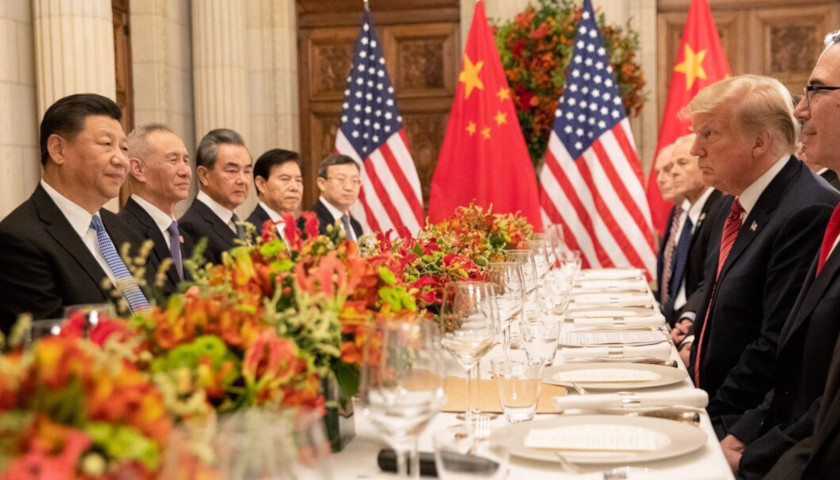Wednesday morning on The Tennessee Star Report, host Michael Patrick Leahy welcomed Senator Bill Hagerty (R-TN) to the newsmaker line to discuss foreign policy and Stop Fentanyl Border Crossings Act.
Read the full storyTag: Huawei
Wisconsin Congressman Calls on LinkedIn to Remove Job Listings for Companies That Pose Security Threats
U.S. Representative Mike Gallagher (R-WI-8) this week urged the head of the career-networking website LinkedIn to prohibit the platform from posting job openings at companies posing security threats to America.
Gallagher, who sits on the House Permanent Select Committee on Intelligence and the House Armed Services Committee, penned a letter to LinkedIn Chief Executive Officer Ryan Roslansky, drawing particular attention to companies with ties to the Chinese Communist Party (CCP). The congressman stated that the site presently welcomes thousands of employment-opportunity notices from China-based corporations the U.S. government flags as national-security and privacy risks.
Read the full storyU.S. Bans Chinese Tech That Allegedly Lets China Spy on Military Sites
The Federal Communications Commission (FCC) on Friday announced a ban on new imports of Chinese-owned telecommunications equipment, including the equipment suspected of surveilling sensitive U.S. military sites.
The new rules, prohibiting U.S. sales and imports of equipment from companies including Huawei and ZTE, are the first to be implemented on the grounds they pose “unacceptable risk to national security,” FCC Commissioner Brendan Carr said Friday. U.S. authorities have expressed concerns that Beijing could exploit the companies’ telecommunications installations across the country to collect data from U.S. sites, including nuclear and military sites in the U.S.
Read the full storyBiden Admin to Bar Chinese Telecom Giants from U.S. Market
The Federal Communications Commission (FCC) plans to ban telecommunication devices and video surveillance equipment from five Chinese companies in a recent move to address national security concerns, according to Axios.
The proposed FCC ban blocks Huawei, ZTE, Hytera Communications Corporation, Hikvision and Dahua Technology Company on national security grounds, marking the first time the FCC has attempted to implement an electronics ban on that basis, Axios reported. The proposed ban follows an Oct. 5 draft order circulated by FCC Chairwoman Jessica Rosenworcel that, if approved through a vote, will effectively block all equipment sales by firms that pose a threat to the U.S., according to Axios.
Read the full storyReport: U.S. Investigates Blacklisted Chinese Tech Giant over Concerns It May Be Spying on Missile Silos
The U.S. is investigating Chinese telecommunications firm Huawei for potential surveillance capabilities at cell towers near U.S. military bases and missile silos, according to Reuters.
Authorities are concerned that China could exploit Huawei communications equipment in the U.S. to gather sensitive data on military procedures and personnel, Reuters reported Thursday. The Commerce Department reportedly opened the investigation in 2021.
Read the full storyTony Podesta Has Now Earned $1 Million Lobbying Biden White House for Blacklisted Chinese Tech Giant
Democratic lobbyist Tony Podesta has earned at least $1 million to lobby the White House on behalf of Huawei, a Chinese technology and telecommunications company blacklisted under the Trump administration.
Podesta, brother of Hillary Clinton’s 2016 presidential campaign chairman John Podesta, received $500,000 from Huawei to lobby the Executive Office of the President between October and December of 2021, according to lobbying disclosures filed late Thursday. Huawei first hired Podesta in July 2021 and paid the long-time Democrat operative $500,000 to lobby the White House from July to September 2021.
Podesta lobbied on “issues related to telecommunication services and impacted trade issues,” according to disclosure forms.
Read the full storyCommentary: The U.S. Might Lose the Tech War in Its Own Hemisphere
South America has sat within the U.S. sphere of interest since the Monroe Doctrine was enunciated in 1823. Now that may be changing, thanks to the inroads that Chinese telecom companies such as Huawei are making in the region’s economies. The advent of 5G networks is showcasing Beijing’s growing ability to rival Washington in South America.
That rivalry isn’t discussed too much in the region itself. Governments in Latin America mostly take a pragmatic approach, waiting for the lowest bidder while trying to remain as friendly as possible with each side. These tendencies hold true for most facets of U.S.-China competition in Latin America, but especially in South America, which is home to several major economies that are more politically and economically independent from the United States than closer neighbors such as Mexico.
Read the full storyU.S. Government Allegedly Approves Sale of Electronic Chips to Huawei
The United States government has allegedly approved the sale of hundreds of millions of dollars worth of electronic chips to Chinese technology giant Huawei, in a massive reversal of a Trump-era policy by the Biden Administration, as reported by the Daily Caller.
The report was first made by Reuters on Wednesday, which cited two anonymous sources who claimed to be familiar with the deal. Huawei intends to use the new supply of chips to construct more automatic components of automobiles, including video monitors and motion sensors. Huawei allegedly asked the suppliers to raise the value of chips from hundreds of millions to at least one billion for the next sale after the four-year licensing agreement expires.
Read the full storyHuawei Employee Allegedly Wrote MIT Professor’s Pro-China Editorial
A Huawei employee allegedly ghostwrote an op-ed on behalf of a Massachusetts Institute of Technology professor, who defended Huawei’s ties with American universities, according to a report from the Washington Free Beacon.
In 2019, Nicholas Negroponte — the co-founder of the MIT Media Lab — wrote a defense of the Chinese company’s partnership with MIT and other post-secondary institutions. He argued that the United States “should collaborate with leading technology companies and their research labs, rather than banning them.”
Read the full storyUK Backtracks on Giving Huawei Role in High-Speed Network
Britain on Tuesday backtracked on plans to give Chinese telecommunications company Huawei a role in the U.K.’s new high-speed mobile phone network amid security concerns fueled by rising tensions between Beijing and Western powers.
Britain said it decided to prohibit Huawei from working on the so-called 5G system after U.S. sanctions made it impossible to ensure the security of equipment made by the Chinese company.
Read the full storyTrump Raises Stakes in Fight with Boris Johnson, Says Using Huawei Jeopardizes US Intelligence
President Donald Trump issued a warning Sunday to countries that use Chinese tech company firm, Huawei.
Read the full storyUK Allows Huawei Limited Access to 5G Networks, Restricts the Company on Other Parts
Britain announced Tuesday plans to allow Chinese company Huawei limited access to the country’s 5G networks, effectively dismissing U.S. pressure to avoid the telecommunications giant.
Read the full storyFCC Will No Longer Allow Telecom Giants to Use Subsidies on Chinese Big Tech Products
Major U.S. internet companies can no longer use subsidies to buy equipment from Chinese mega supplier Huawei, federal regulators ruled Friday.
Read the full storyLeaked Docs Reportedly Show Huawei Secretly Built Up North Korea’s Wireless Phone Network
by Chris White A Chinese tech company at the center of President Donald Trump’s trade war with China secretly helped North Korea maintain its commercial wireless network, The Washington Post reported Monday. Huawei partnered with a massive Chinese state-owned company called Panda International on projects in the communist nation over eight year, the report notes, citing documents and contracts, as well as anonymous sources. The memos do not explicitly lay out a connection between Huawei and North Korea, but they do raise questions about the relationship. A former Huawei employee leaked the spreadsheets and documents detailing the nature of the relationship. Other anonymous sources provided separate memos confirming the linkage, according to WaPo’s report, which comes as Trump and Republicans consider the implications of allowing Huawei a foothold in U.S. technology. The Commerce Department has never connected Huawei and North Korea despite undergoing a nearly four-year long investigation into the matter. The department has not replied to the Daily Caller News Foundation’s request for a comment about the report. All of this comes after the Department of Justice charged Huawei in January with bank fraud and violations of U.S. sanctions on Iran. The president signed an executive order in May that effectively bans technologies from foreign…
Read the full storyRep. Green Points Out Chinese Cybersecurity Threat During Forum at Brussels
U.S. Rep. Dr. Mark Green (R-TN-07) participated in international forums and panel discussions on cybersecurity and transatlantic alliances last weekend. He attended the Brussels Forum organized by the German Marshall Fund, a nonpartisan public policy think tank dedicated to promoting cooperation between North America and Europe. The Brussels Forum is an annual high-level meeting of U.S., European, and global political, corporate, and intellectual leaders. Green met with leaders of NATO, Taiwan, and several European nations. Green tweeted, “I was able to join a great discussion in Brussels hosted by the @gmfus last weekend on election security. Watch a portion of our conversation below.” I was able to join a great discussion in Brussels hosted by the @gmfus last weekend on election security. Watch a portion of our conversation below. pic.twitter.com/jbK2cOhLaX — Rep. Mark Green (@RepMarkGreen) July 2, 2019 In his opening remarks at the panel, Green said, “You probably have all heard of the DIME model or paradigm of warfare. And you’ve also probably heard of the domains of war. We think of an attack, we think of a strike against a building, and you see people and you see the wounded. But with a cyberattack, you don’t see that. It’s…
Read the full storyTrump Allowing Select US Firms to Supply Huawei Has Some in Congress Fuming
by Rob Garver National security hawks who normally side with U.S. President Donald Trump on foreign policy issues are up in arms over his announcement on Saturday that he would indefinitely delay the imposition of tariffs on $300 billion of Chinese goods and relax restrictions on U.S. firms doing business with Chinese telecommunications giant Huawei. In a news conference Saturday that followed a bilateral meeting with Chinese President Xi Jinping at the Group of 20 summit in Osaka, Japan, Trump said: “U.S. companies can sell their equipment to Huawei. We’re talking about equipment where there’s no great national security problem with it. ‘Entity List’ This represents a sharp reversal by Trump, whose administration on May 16 added the company to the “Entity List” kept by the federal Commerce Department. Inclusion on that list is viewed as a sort of death penalty for foreign firms, because it prevents U.S. companies from doing business with them without express permission from the Commerce Department. In an announcement at the time, the department’s Bureau of Industry and Security said, “The U.S. Government has determined that there is reasonable cause to believe that Huawei has been involved in activities contrary to the national security…
Read the full storyPublic Policy Group Calls for Ban on Sale of All U.S. Equipment to Huawei, Which is Accused of Having Ties to People’s Liberation Army, Chinese Communist Party
In the wake of President Donald Trump’s meeting with China’s Xi Jinping in Osaka, Japan Saturday, the Committee on the Present Danger: China (CPDC) called for a halt to the sale of all U.S. equipment to the Huawei communications company. Trump announced that “U.S. companies can sell their equipment to Huawei. I’m talking about equipment where there is no great national emergency problem with it,” CPDC said in a press release. The Committee on the Present Danger: China said it believes that all provision of products and services and licensing of technology to Huawei undermine the security of the United States, its allies, and partners. CPDC said it agrees with the findings of Trump’s executive order of May 15, 2019 titled “Securing the Information and Communications Technology and Services Supply Chain.” This order addressed the threat posed by “foreign adversaries.” Huawei, a state-owned enterprise with known ties to the People’s Liberation Army, is such an adversary, the committee said. U.S. Secretary of State Mike Pompeo in May accused the head of Chinese telecommunications giant Huawei Technologies of lying about his company’s relationship with the government in Beijing, Battleground State News said. Huawei, the world’s largest maker of telecommunications network equipment, is…
Read the full storyHuawei Founder Says Revenue Will Be Billions Below Forecast
Huawei’s founder said Monday that the Chinese telecom giant’s revenue will be $30 billion less than forecast over the next two years, as he compared the company to a “badly damaged plane” in the face of U.S. government actions against it. “We never thought that the U.S.’s determination to attack Huawei would be so strong, so firm,” Ren Zhengfei (pictured above), who is also the CEO, said during a panel discussion at company headquarters in Shenzhen. Ren said Huawei will reduce capacity and expects revenues of about $100 billion annually for the next two years, compared to $105 billion in 2018. In February, he said the company was targeting $125 billion in 2019. Huawei’s overseas cellphone sales will drop by 40%, Ren said, confirming a Bloomberg report published Sunday. But the Chinese market is growing rapidly, and Huawei will not allow restrictive measures to curb its research and development, he added. Huawei is embroiled in an ongoing trade dispute between China and the U.S., which has accused Chinese companies such as Huawei of committing forced technology transfers and stealing trade secrets. Last month, the U.S. placed Huawei on its “Entity List,” which effectively bars American companies from selling components…
Read the full storySenators Blackburn, Blumenthal Sound Alarm Over Chinese Telecom Giant Huawei’s Role in National Defense Technology
U.S. Sens. Marsha Blackburn (R-TN) and Richard Blumenthal (D-CT) are expressing concerns about the inclusion of Huawei in the development of next-generation sharing technology in a band of spectrum critical to national defense. The senators wrote a letter on the topic Wednesday to Patrick Shanahan, Acting Secretary of the Department of Defense, and Ajit Pai, Chairman of the Federal Communications Commission. The letter was also signed by U.S. Sens. Susan Collins (R-ME), John Cornyn (R-TX), Tom Cotton (R-AR), Edward Markey (D-MA) and Dan Sullivan (R-AK). “For years, alarm bells have been ringing over concerns about Huawei, especially in regards to national security and economic competitiveness,” Blackburn said in a press release. “Yet, as far back as 2016, and as recently as 2018, representatives from Huawei have been meeting with government officials regarding their work to develop next-generation spectrum sharing technologies between the United States Navy and the commercial sector. Spectrum sharing is a solution to spectrum management, but serious questions need to be answered regarding Huawei’s involvement.” Blackburn also tweeted her concerns, saying, “Alarm bells are ringing about Huawei – especially in regards to national security & economic competitiveness. That’s why @SenBlumenthal & I wrote a letter to @ActingSecDef…
Read the full storyPompeo Accuses Huawei of Lying About Ties to Chinese Government
U.S. Secretary of State Mike Pompeo has accused the head of Chinese telecommunications giant Huawei Technologies of lying about his company’s relationship with the government in Beijing. Pompeo said in a CNBC interview Thursday that Huawei “is tied not only to China but to the Chinese Communist Party.” He added, “The existence of those connections puts American information that crosses those networks at risk.” Huawei, the world’s largest maker of telecommunications network equipment, is a leader in 5G technology. It has been trying to win contracts to build a global network that would make the internet much faster. Last week, the U.S. government banned American companies from doing business with Huawei, escalating a heated trade war between the world’s two largest economies. CEO Ren Zhengfei has maintained his company would not share secret user information. Huawei denies it is controlled by Beijing. The company also says it does not work with the Chinese government, an assertion Pompeo dismisses. “To say that they don’t work with the Chinese government is a false statement,” Pompeo said of Huawei. “He is required by Chinese law to do that,” Pompeo added. “The Huawei CEO on that at least isn’t telling the American people…
Read the full storyGoogle Moves to End Huawei Support in the U.S. After Trump Blacklists on Some Foreign Tech
by Chris White Google suspended some business with Huawei after President Donald Trump placed restrictions on technologies from foreign adversaries, Reuters reported Sunday, citing an anonymous source familiar with the matter. Huawei, a Chinese telecommunications company the United States believes is engaged in foreign espionage, will reportedly lose access to updates to the Android operating system, as well as the next version of Google’s smartphones. The move is expected to deny the company access to critical applications. Details are not fully fleshed out as Google is still discussing the matter internally, one source told Reuters. Neither Google nor Huawei responded to The Daily Caller News Foundation’s request for confirmation. The move comes shortly after Trump signed an executive order Wednesday that would effectively ban certain types of technologies from foreign countries deemed a national security threat to the U.S. The U.S., meanwhile, continues to apply pressure on Britain and others to shy away from using Huawei to build out its fifth generation network. Allowing the participation of Huawei in Germany’s 5G project would mean the U.S. won’t be able to maintain the same level of cooperation with Germany’s security agencies, U.S. Ambassador Richard Grenell said in March. Justice Department officials charged Huawei on…
Read the full storyCommentary: Trump Shuts China’s ‘Backdoor’ to Cyber Spying
by Thaddeus G. McCotter President Trump on Wednesday signed an executive order in a prescient move to defend America’s national security against Chinese cyber espionage. Invoking his powers under the International Emergency Economic Powers Act, the president gave the Commerce Department 150 days to devise methods of implementing new rules for American companies that wish to trade with “foreign adversaries” designated as an “unacceptable risk” to U.S. national security. While not specifically named in the president’s order, the Communist Chinese telecommunications company, Huawei, and some 70 affiliates are expected to be on the Commerce Department’s risk list. The Trump Administration earlier precluded the U.S. government and its contractors from using Huawei products, for a host of reasons. The Justice Department has issued criminal charges against a top Huawei executive, the company, and several of its many subsidiaries for stealing trade secrets, as well as misleading banks in order to violate U.S. sanctions on Iran. The government further alleges that Huawei stole trade secrets from U.S. companies and competitors. Overall, Huawei is widely believed to engage economic espionage. No wonder that in 2012, the House Intelligence Committee reported that Huawei and ZTE (China’s second-largest telecommunications company) facilitate the regime’s cyberespionage…
Read the full storyTrump Calls Out ‘Revolving Door’ After Obama Official Hired by Chinese Telecom Giant Huawei
by Evie Fordham President Donald Trump called out an Obama-era White House cybersecurity official on Twitter Sunday night for taking a position lobbying for Chinese telecommunications giant Huawei. “Chinese Telecom Giant Huawei hires former Obama Cyber Security Official as a lobbyist. This is not good, or acceptable!” Trump wrote, tagging Fox News and Fox News host Steve Hilton. Chinese Telecom Giant Huawei hires former Obama Cyber Security Official as a lobbyist. This is not good, or acceptable! @FoxNews @SteveHiltonx — Donald J. Trump (@realDonaldTrump) April 15, 2019 Samir Jain is the former senior director for cybersecurity policy at the White House National Security Council and registered with Congress to lobby for Huawei on March 27. He now works for law and lobbying firm Jones Day. Jain worked for the White House toward the end of the Obama era from 2016 to 2017 and for the Justice Department as an associate deputy attorney general from 2014 to 2015, according to his Jones Day bio page. While at the DOJ, Jain’s “responsibilities included …. supervising evaluation of telecommunications license applications for significant national security risks, and representing the DOJ in White House cybersecurity meetings and international negotiations, such as China’s agreement not to…
Read the full storyTrump Administration Uses Obscure Treasury Department Agency to Tighten Foreign Investments in U.S. Tech and Data by China
by Masood Farivar For decades, it was virtually unknown outside a small circle of investors, corporate lawyers and government officials. But in recent years, the small interagency body known as the Committee for Investment in the United States has grown in prominence, propelled by a U.S. desire to use it as an instrument of national security and foreign policy. This week, the panel made headlines after it reportedly directed Chinese gaming company Beijing Kunlun Tech to divest itself of Grindr, a popular gay dating app, because of concern the user data it collects could be used to blackmail military and intelligence personnel. Operating out of the Treasury Department, the nine-member CFIUS (pronounced Cy-fius) reviews foreign investments in U.S. businesses to determine whether they pose a national security threat. Notification was voluntary Until last year, notifying the panel about such investments was voluntary, something Kunlun and California-based Grindr took advantage of when they closed a deal in 2016. But given growing U.S. concern about Chinese companies with ties to Beijing buying businesses in sensitive U.S. industries, the committee’s rare intervention to undo the deal was hardly a surprise, said Harry Broadman, a former CFIUS member. “I think anyone who was surprised…
Read the full storyChina’s Huawei Sues US Government Over Ban
Chinese tech giant Huawei has sued the U.S. government, arguing that legislation Congress passed last year that restricts its business in the United States is “unconstitutional.” The case, which analysts see more as a public relations move, is but the latest in an intensifying effort by the telecommunications company to fight U.S.security concerns, which Huawei argues are unfair and unfounded. In its lawsuit, Huawei argues that Section 889 of the National Defense Authorization Act violates the constitutional principles of separation of powers and due process. By singling out the company and punishing it without a trial, the company also argues that the law violates the Constitution’s bill of attainder clause. Section 889 bans federal agencies and their contractors from purchasing equipment and services from Huawei as well as another Chinese telecom company ZTE. It was signed into law last year by President Donald Trump. “This ban is not only unlawful but also harms both Huawei and U.S. consumers,” Huawei’s rotating chairman, Guo Ping, told reporters at news conference in Shenzhen on Thursday. “This section strips Huawei of its due process, violating the separation of powers principles, breaks U.S. legal traditions, and goes against the very nature of the constitution.” Guo…
Read the full storyLook But Don’t Touch as Smartphone’s Flexible Future Unfolds
Flexible and folding formats framed the future of smartphones this week as manufacturers focused on new forms in an effort to jolt the market out of uniformity and re-invigorate sales. But anyone hoping to tap or swipe Huawei’s Mate X, a smartphone that wraps the screen around the front and back, was soon disappointed at Barcelona’s Mobile World Congress. Initial cheers were quickly followed by gasps when the Chinese firm revealed its eye-watering 2,299 euros ($2,600) price tag, although that includes a 5G connection. This is even more than Samsung’s Galaxy Fold, which was unveiled last week and will be priced from $1,980 when it goes on sale in some markets in April. It was on display in Barcelona in a glass case like a museum artifact. While the hands-off stance indicates neither firm has a consumer-ready device, 2019 would be remembered as the year of the foldable Ben Wood, chief of research at CCS Insight, said, adding that the new format was still in its infancy. “But we are at the stone age of devices with flexible displays; it’s a whole new phase of experimentation after the sea of smartphone sameness we have seen for the last decade.” Samsung…
Read the full storyBerkeley University Suspends New Research Projects with Chinese Telecom Giant Huawei
One of the world’s top research universities, the University of California, Berkeley, has stopped new research projects with Huawei Technologies, the embattled Chinese telecommunications giant. The university’s suspension, which took effect on January 30, came after the U.S. Department of Justice filed criminal charges against the corporation and some of its affiliates two days earlier. The department announced a 13-count indictment against Huawei, accusing it of stealing trade secrets, obstruction of justice, violations of economic sanctions and wire fraud. Vice Chancellor for Research Randy Katz said in a letter addressed to the Chancellor’s cabinet members the campus would continue to honor existing commitments with Huawei that provide funding for current research projects. Huawei’s chief financial officer, Meng Wanzhou, has been under house arrest in Canada since December 1 for allegedly deceiving U.S. banks into clearing funds for a subsidiary that interacted with Iran in violation of U.S. sanctions. Her extradition to the U.S. is pending. Meng’s arrest has prompted some observers to question whether her detention was an attempt to pressure China in its ongoing trade war with the U.S. She is the daughter of the corporation’s founder, a relationship that places her among the most influential corporate executives in…
Read the full storyWhite House Mulls New Year Executive Order to Bar Huawei, ZTE Purchases
President Donald Trump is considering an executive order in the new year to declare a national emergency that would bar U.S. companies from using telecommunications equipment made by China’s Huawei and ZTE, three sources familiar with the situation told Reuters. It would be the latest step by the Trump administration to cut Huawei Technologies Cos Ltd and ZTE Corp, two of China’s biggest network equipment companies, out of the U.S. market. The United States says the companies work at the behest of the Chinese government and that their equipment could be used to spy on Americans. Huawei and ZTE did not return requests for comment. Both in the past have denied that their products are used to spy. Rural operators in the United States are among the biggest customers of Huawei and ZTE, and worry that they may also have to rip out existing Chinese-made equipment without compensation. Industry officials are divided on whether the administration could legally compel operators to do that. The executive order, which has been under consideration for more than eight months, could be issued as early as January and would direct the Commerce Department to block U.S. companies from buying equipment from foreign telecommunications makers…
Read the full storyCommentary: The Arrest of Huawei Executive Meng Wanzhou Helps Negotiations with China
by Steven W. Mosher Wall Street is worried that the arrest of Huawei Vice Chairman Meng Wanzhou will put President Trump’s ongoing trade negotiations with China on ice. They fear that China may retreat from its G-20 promises, or perhaps even call off the negotiations altogether. Some have suggested that U.S. tech executives avoid traveling to China, fearing revenge arrests. As someone who has followed elite politics in Communist China for 40 years, I disagree. In fact, I think that Meng’s arrest may actually help move the negotiations along. China’s leaders see her arrest as a deliberate provocation, intended to provoke them into the kinds of overreactions that would blow up the trade negotiations. They view it, in other words, as a strategic deception. Anyone who has read their Sun-Tzu knows that deception is the primary category—the default position, if you will—of Chinese strategic thought. And the ancient strategist’s famous dictum, “All warfare is deception,” obviously applies to trade wars as well. China knows that the president’s advisors are divided between the globalists, who hope for a win-win agreement on trade, and the nationalists, who want to disengage America’s economy from China’s. They fear that the nationalists have arranged…
Read the full story
